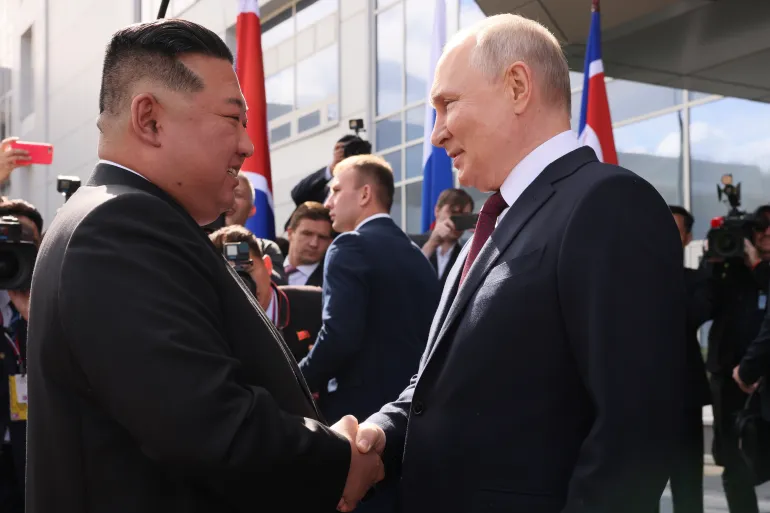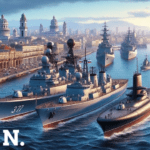South Korea and United States officials have warned about Russian President Vladimir Putin’s planned visit to North Korea. They argue that this visit, potentially deepening military ties, would breach United Nations Security Council resolutions. The visit could occur this month, stirring significant geopolitical tensions.
South Korea’s foreign ministry issued a statement on Friday. Vice Foreign Minister Kim Hong-kyun communicated these concerns in an emergency phone call with US Deputy Secretary of State Kurt Campbell. Both officials emphasized that Putin’s visit should not lead to increased military cooperation between Moscow and Pyongyang. The implications of such cooperation could be profound, impacting regional stability.
Joint Response to Potential Threats
While monitoring these developments closely, South Korea and the United States agreed on a unified response. They pledged to address North Korea’s provocations and actions that escalate regional tensions through strong cooperation. This agreement highlights the seriousness with which both nations view potential threats from North Korea.
Campbell reaffirmed the commitment to continued cooperation. He stressed the importance of addressing regional instability and challenges potentially caused by Putin’s visit. This pledge of cooperation underscores the alliance’s dedication to maintaining peace and security in the region.
Rumours and Speculations
Rumors about Putin’s trip began circulating on Monday. Russia’s Vedomosti newspaper reported that Putin would visit North Korea and Vietnam in the coming weeks. These rumors have since sparked considerable speculation and concern among international observers.
On Thursday, Kremlin spokesperson Dmitry Peskov addressed the rumors. He declined to provide a specific date for the possible visit. Peskov’s statement did little to quell the rising concerns. He emphasized that Russia has the right to develop good relations with its neighbors. This assertion aimed to justify the potential visit but did not alleviate fears about its implications.
International Reactions
The international community is watching these developments closely. Many view Putin’s potential visit as a significant geopolitical maneuver. North Korea has long been considered a rogue state due to its nuclear ambitions and aggressive posturing. Strengthening ties with Russia could embolden Pyongyang, leading to increased regional instability.
Peskov described North Korea as a “friendly country” to Russia. He highlighted the ongoing development of bilateral relations between the two nations. This friendship and potential military cooperation raise alarms, particularly for countries like South Korea and the United States.
Historical Context and Future Implications
The historical context adds another layer of complexity to these developments. North Korea’s relationship with the international community has been fraught with tension and conflict. Its pursuit of nuclear weapons has led to severe sanctions and isolation. Any enhancement of its military capabilities, facilitated by Russia, could escalate these tensions further.
The potential visit of Putin to North Korea must be seen within this broader context. It could signal a shift in geopolitical alliances, with significant consequences for regional and global security. The response from South Korea and the United States indicates the gravity of the situation. They are prepared to take necessary actions to counter any threats that may arise from this potential alliance.
Conclusion
In conclusion, the planned visit of Russian President Vladimir Putin to North Korea has raised significant concerns among South Korean and United States officials. They warn that such a visit could deepen military ties between Moscow and Pyongyang, breaching United Nations Security Council resolutions. The potential implications for regional stability are profound, prompting a strong and unified response from both nations. The international community will be closely monitoring these developments, recognising the potential for increased geopolitical tension and instability.





